Description
Dr. Felix Podimattam is one of the best-known moral theologians in India and outside. Besides his full time job as a professor, he finds time to write books at an amazing rate. He has authored 85 books. Besides his Master’s degree in Political Science from the University of Mysore, he holds a Licentiate in Theology from the Pontifical Gregorian University, Rome, and subsequently a Doctorate in Moral Theology from the Alphosian Academy, Rome, His postdoctoral studies were pursued in Washington, DC, U.S.A. At Present he is professor of moral theology at St. Francis Theological College, Kottayam, Kerala.
THE MORAL LAW
MODERN PERSPECTIVES
Every human life in the world naturally strives towards achieving something that is inevitable. In order to attain it man has to follow an order or law, that will help an individual to reach the right end, is called moral law. Human emotions and motives overpowers the self sometimes that one can move out of the track towards one’s goal, therefore it is not very easy sometimes to understand and recognize the truth within oneself as to follow the moral law. Unbecoming attitude that resulted from the selfishness of man had caused the enforcement of laws of different nature. Though every kind of law has its pros and corns ultimate aim of all these are for man to become good human being and follow the epistemologically and psychologically understood law within that is the moral law.
CHAPTER ONE. FOUNDATION OF LAW:
NATURAL LAW
1. Do We Still Need Natural Law?
2. A Brief History of Natural Law
3. What Is Natural Law?
3.1. Traditional Understanding of Natural Law
3.2. Critique of Traditional Understanding of Natural Law
3.2.1. Critique of the Argument Based on Natural Tendencies
3.2.2. Critique of the Argument Based on Consequences
3.2.3. Critique of the Argument Based on the Purpose or Function of Human Faculties
3.2.4. Critique of the Argument Based on Rights
3.3. Modern Understanding of Natural Law
3.3.1. Review of Relevant Modern Trends
3.3.2. Personal Synthesis
4. Characteristics of Natural Law
4.1. Natural Law Is Absolute
4.2. Natural Law Is Changeable
4.2.1. Changeability of the Basis of Natural Law:
Human Nature
4.2.1.1. Human Nature Is Historical
4.2.1.2. Variations of Human Nature
4.2.1.3. Elasticity of Human Nature
4.2.1.4. Human Nature Is Dynamic
CHAPTER TWO
NATURE OF LAW
1. insight from the Bible
2. Insight from Philosophy
3. Insight from St. Thomas
4. Description of Law
CHAPTER THREE
LAW AND MORALITY
CHAPTER FOUR.
CANON LAW
1. Nature of Canon Law
2. Evolution of Canon Law
3. Purpose of Canon Law
4. Characteristics of Canon Law
5. Li mi ta tions of Canon Law
6. Interpretation and Criticism of Canon Law
7. Obligation of Canon Law
8. Cessa lion of Canon Law
CHAPTER FIVE.
CIVIL LAW
1. Why Is Civil Law Enacted?.
Limitations of Civil Law 218
a obligation of Civil Law 218
4 The Question of Merc Penal Laws 222
chapter six.
DE FORMATIONS OF LAW 229
1 Legalism 229
1.1. Nature of Legalism 230
1.2. Interior Law 231
1.4. Critique of Legalism 239
1.5. Remedies for Legalism 250 2. Who Are the Children of God? 251
chapter seven.
PERFECTION OF LAW:
LAW OF FREEDOM OF THE CHILDREN OF GOD 261
1 Distinction between Exterior Law and Interior Law 261
1.1. Exterior Law 261
1.1.1. Critique of Exterior Law by Jesus 262
1.1.2. Critique of Exterior Law by Paul 263
1.1.3. Practical Reflections 265
1.2. Interior Law 266
1.2.1. Data of Scripture 266
1.2.2. Data from St. Thomas Aquinas 268
1.2.3. Data of Reason 271
1.2.4. Practical Reflections 271
2- Who Are the Children of God? 273
3- What Is the Law of Freedom of the Children of God? 277
3.1. Freedom Is Primarily a Positive Power to Be 277
3.2. The Law of Christ Is Law of Freedom 278
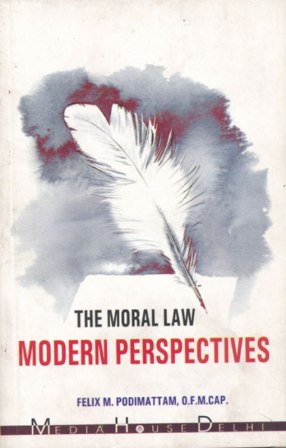
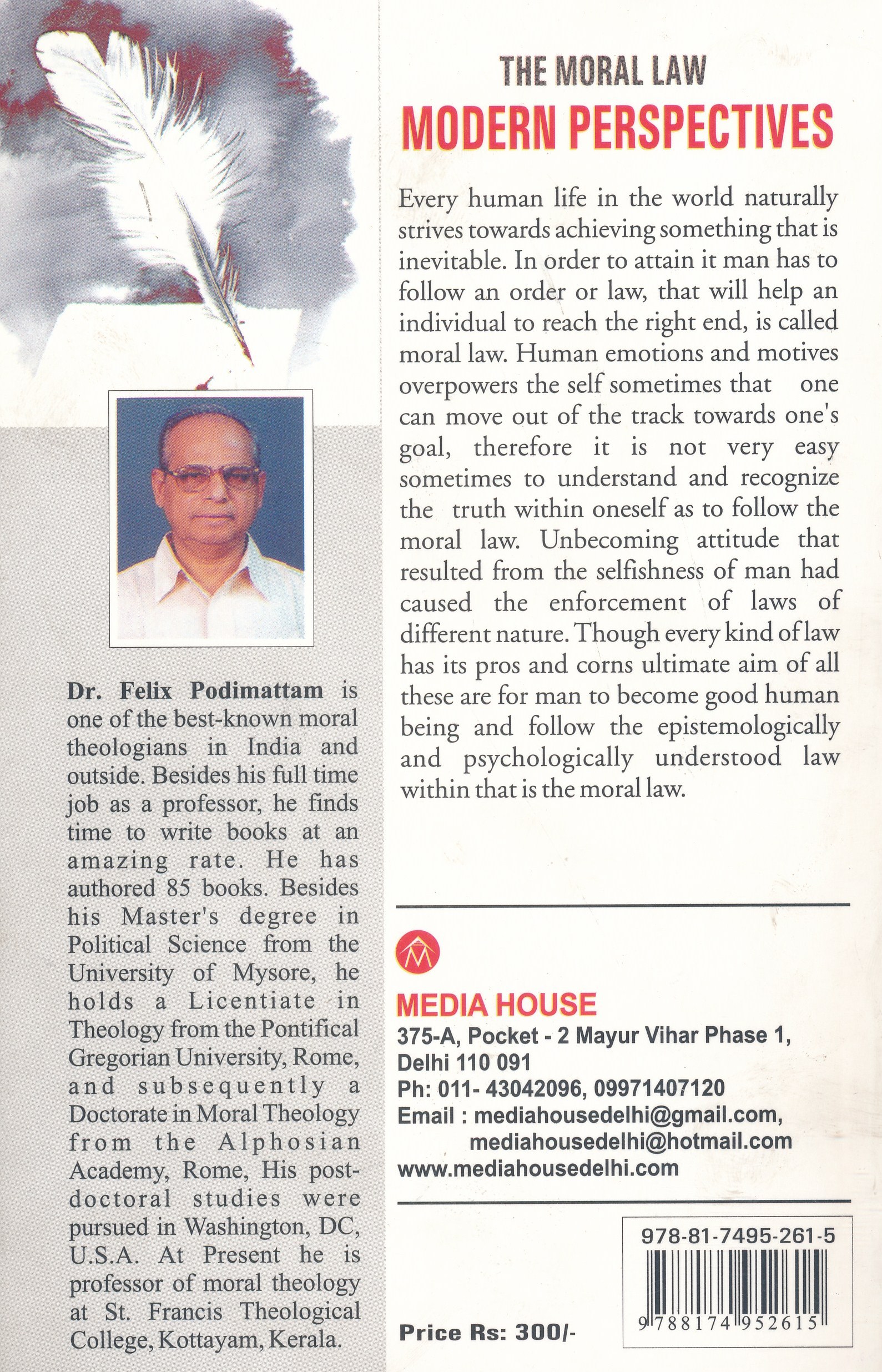
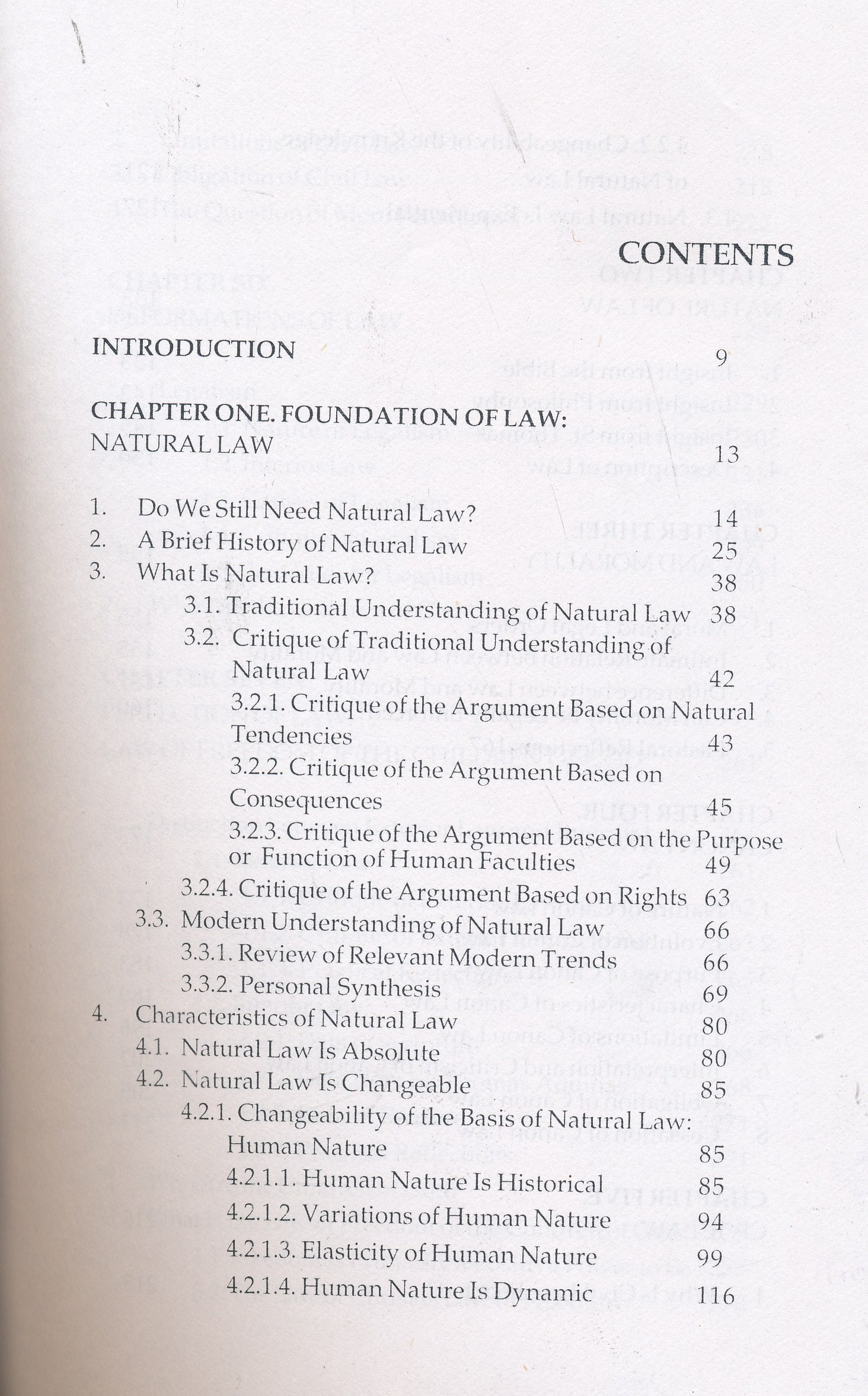
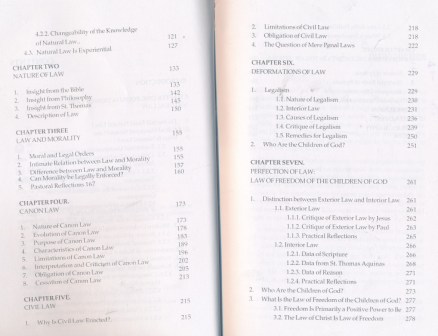
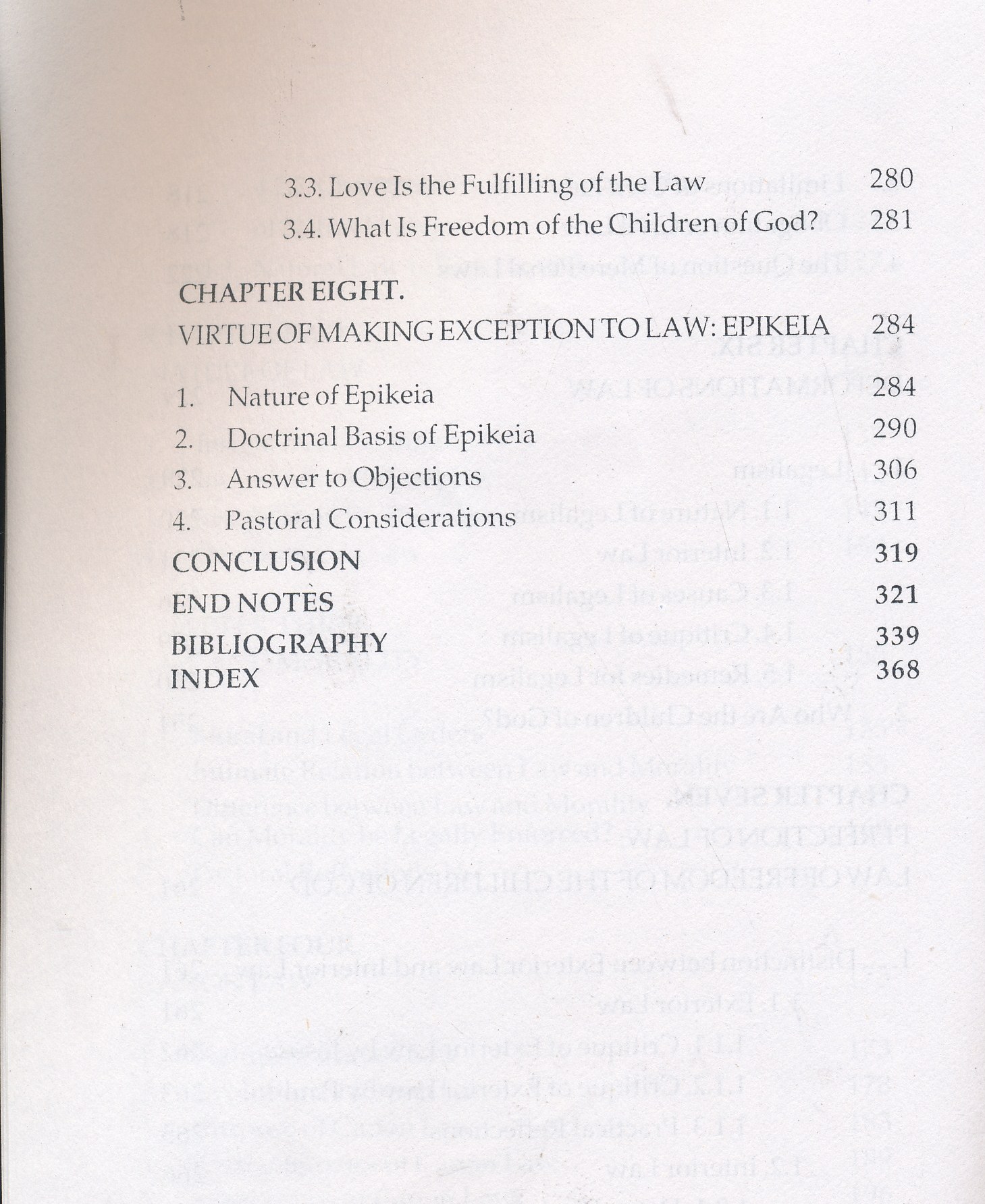

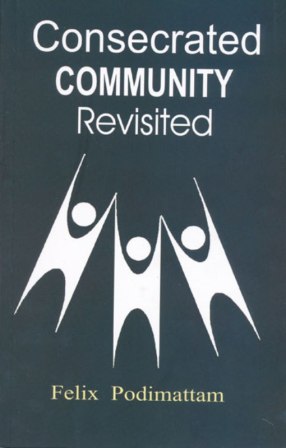

Reviews
There are no reviews yet.